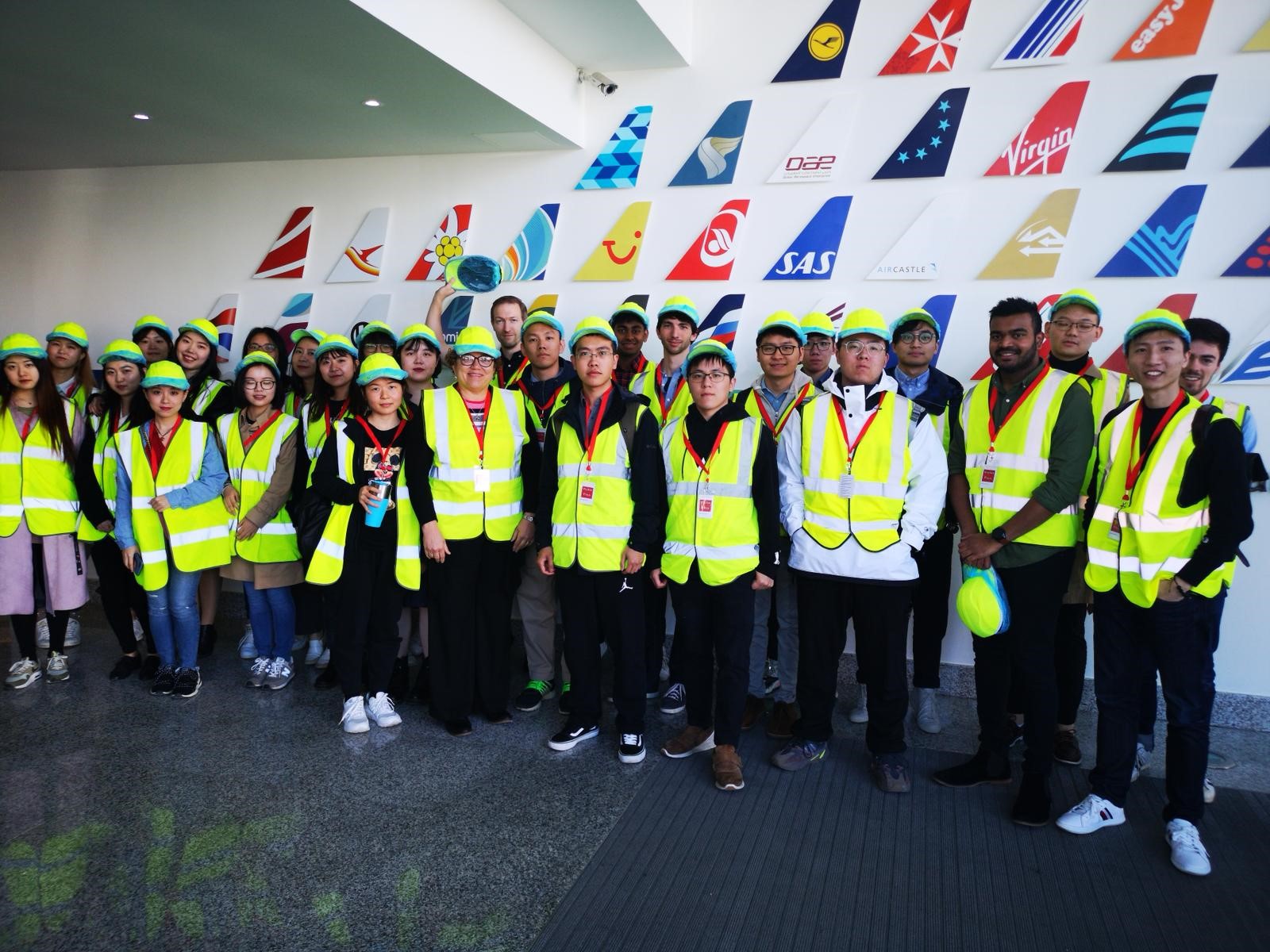Lufthansa Technik – Malta Study Tour 2019
02/05/2019

During the study tour in Malta, we had the chance to visit Lufthansa Technik. It is a maintenance centre where they check and repair aeroplanes from different airline companies including Lufthansa.
The production part of the site has a capacity of 7 aircrafts and offers mostly C-checks (every 12 to 18 months) and D-checks (every 4-5 years). Aircraft maintenance checks are periodic inspections that have to be done on all Airlines and other commercial operators of large or turbine-powered aircraft. A and B checks are lighter checks, while C and D are considered heavier checks. As the product is extremely expensive and valuable, every action made on the plane must be listed and comply with the customer demand. When a new issue has been revealed, they have to first wait for the airline company to agree for them to change or repair that part. As there is an exhaustive list of things to check, they implemented a very clear visual management system to keep track of the work progress. It is very important to remain on schedule or be able to predict exactly how much delay there is going to be, if there is a delay, as the planes are used for commercial flights. This management system also enables the presentation of KPIs such as productivity and number of working hours. With colour-coding it is easily understandable if the team did well, or not, each day.
As there is an incredible number of parts on each plane and which varies according to the plane type and the airline company, an optimised warehouse is a key factor in the success of the company. There are on average 800 parts each day which are being sent from the warehouse to the production lines. The receiving process takes time as different inspections are required to check all the parts received. In fact, the team explained “Swiss cheese” effect to us: the different checking will enable to find the different hole of the cheese. As their expertise is different, they do not see all the same holes.
One thing which did amaze us is that the warehouse deliver the spare parts to the hangars required with a bicycle, this is a really good eco-friendly initiative. Picking is manual and parts are either brought to the hangars, despatched to other Lufthansa Technik facilities or given back to the different airlines when required. In addition, 3D printers are used in Lufthansa Technik, they enable the staff to print some specific spare parts they need.

A big thanks to the people that contributed to the organisation of this visit. It was really interesting and impressive to see how in practice concepts are applied to this specific sector.
Categories & Tags:
Leave a comment on this post:
You might also like…
Keren Tuv: My Cranfield experience studying Renewable Energy
Hello, my name is Keren, I am from London, UK, and I am studying Renewable Energy MSc. My journey to discovering Cranfield University began when I first decided to return to academia to pursue ...
3D Metal Manufacturing in space: A look into the future
David Rico Sierra, Research Fellow in Additive Manufacturing, was recently involved in an exciting project to manufacture parts using 3D printers in space. Here he reflects on his time working with Airbus in Toulouse… ...
A Legacy of Courage: From India to Britain, Three Generations Find Their Home
My story begins with my grandfather, who plucked up the courage to travel aboard at the age of 22 and start a new life in the UK. I don’t think he would have thought that ...
Cranfield to JLR: mastering mechatronics for a dream career
My name is Jerin Tom, and in 2023 I graduated from Cranfield with an MSc in Automotive Mechatronics. Originally from India, I've always been fascinated by the world of automobiles. Why Cranfield and the ...
Bringing the vision of advanced air mobility closer to reality
Experts at Cranfield University led by Professor Antonios Tsourdos, Head of the Autonomous and Cyber-Physical Systems Centre, are part of the Air Mobility Ecosystem Consortium (AMEC), which aims to demonstrate the commercial and operational ...
Using grey literature in your research: A short guide
As you research and write your thesis, you might come across, or be looking for, ‘grey literature’. This is quite simply material that is either unpublished, or published but not in a commercial form. Types ...






